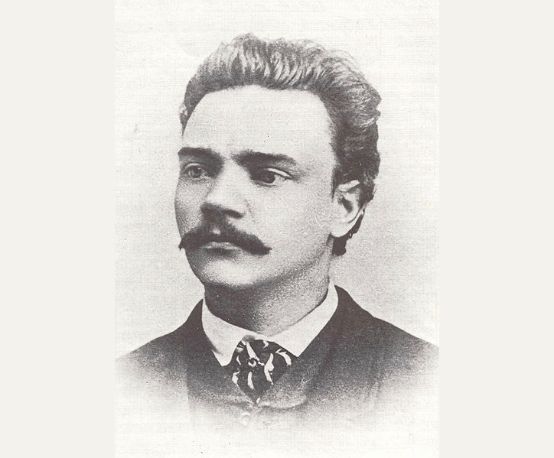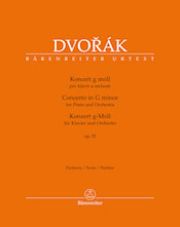Long neglected original version
Antonín Dvořák's only piano concerto has long been performed in an edited version or dropped from the repertoire altogether. Wrongly so!

When one thinks of Dvořák's solo concertos, it is surely first and foremost his brilliant
Cello Concerto op. 104, "the perfect concerto ever", according to the pianist (!) Rudolf Buchbinder. His only piano concerto in G minor op. 33 is rarely heard in our concert halls. What are the reasons for this?
At the time, Dvořák already had some experience as a composer in the field of chamber music and symphonies. However, his very own tonal language is only partially revealed in the three movements of the work. Borrowings from masters such as Beethoven, Chopin, Wagner and Brahms are still unmistakable. This is particularly the case in the first movement, while the slow second movement already reveals very personal traits. However, what has repeatedly prevented many pianists from including this concerto in their repertoire is probably the unwieldy, uncomfortable piano writing, which sounds enchanting in places but does not allow for virtuoso showmanship.
For this reason, around 100 years ago, the Czech piano teacher Vilém Kurz felt compelled to thoroughly revise the solo part. For decades, only his version seems to have been played. One of the first pianists to champion the original version was none other than Sviatoslav Richter. He played the concerto quite frequently and even recorded it in 1976 with the Bavarian State Orchestra (under Carlos Kleiber!).
Robbert van Steijn recently republished this original version by Bärenreiter-Verlag, both the piano reduction and the score. The preface provides all kinds of enlightening information about the complicated history of the work's reception, and Ivo Kahánek adds some very useful tips on interpretation and fingering.
The growing interest in Dvořák's piano concerto in recent times cannot be overlooked. The new Bärenreiter edition will presumably reinforce this trend. András Schiff is probably not wrong when he says: "Numerous piano concertos of the 19th century, which are part of the repertoire of many pianists - and are played far too often - are no less complicated pianistically, without reaching Dvořák's work in terms of musical expression and compositional skill."
Antonín Dvořák: Concerto in G minor op. 33 for piano and orchestra, Urtext edited by Robbert van Steijn; score, BA 10420, € 59.00; piano reduction, BA 10420-90, € 32.50; Bärenreiter, Prague








